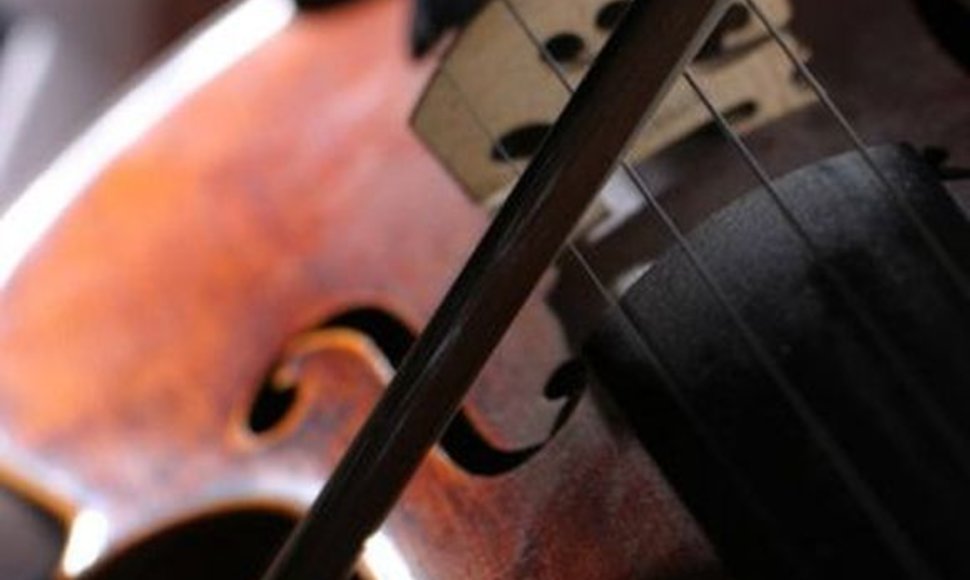Neither was his childhood friend Yacob Geringas. A member of the Toronto Symphony Orchestra, Geringas wrote his fellow violinist advising him not to come, warning that musical standards in Toronto were very high.
Bankas had taken advantage of a temporary thaw in Cold War relations following the election of Ronald Reagan as President of the United States. Unsure of where the new president might be going, Soviet authorities made a small goodwill gesture by temporarily easing emigration restrictions for those seeking exit visas to Israel.
Bankas didn't make it to Israel. The Lithuanian musician took advantage of a six-month layover in Italy to apply to immigrate to Canada. “After he saw I really wanted to come to Canada,” Bankas recalls, “the consular official said ‘They have a really strong musicians union in Toronto.'”
After he saw I really wanted to come to Canada, the consular official said ‘They have a really strong musicians union in Toronto.
It was his friend Jacob Geringas who subsequently nominated him for membership in the union. As the saying goes, he hasn't looked back since. This season Bankas marks his 30th anniversary as a Canadian musician.
“Atis belongs to a wave of immigrants from Eastern Europe who brought a cultural tradition and level of musicianship that knocked everybody on their ears,” declares James Anagnoson, dean of the Royal Conservatory's Glenn Gould School. “Certain of these people had a real impact on Canadian culture. Atis is one of them.”
The impact has been multifarious. In addition to becoming one of the mainstays of the Toronto Symphony's violins, having been welcomed into the orchestra mere months after arriving in the city, he has shared in the training of generations of young string players, not only at the Royal Conservatory and University of Toronto but through a series of summer academies across the province and in workshops and master classes in the United States, Europe and Japan.
This summer will also mark the 14th season of Music Niagara, the festival he founded and directs independent of (but parallel to) the Shaw Festival in Niagara-on-the-Lake, running July 13 to August 11, and centred on historic St. Mark's Church and neighbouring wineries.
The Gould Quartet, of which he is first violinist, acts as resident ensemble for the festival and this year's guest artists include pianists André Laplante and Stewart Goodyear, the Borodin String Quartet and the Trinity College Choir from England's Cambridge University.
The Niagara region holds a special place in his heart. He played briefly with the Niagara Symphony before joining the Toronto Symphony Orchestra and continues to maintain a home there. But his career has proven to be international. He even holds an honorary doctorate from Azerbaijan's Ministry of Education and Academy of Fine Arts “for his contribution to the musical culture of Azerbaijan and the development and deepening of cultural relations between Azerbaijan and Canada.”
It was his mother who actually placed him on a musical path at the age of five, insisting he play the violin because his sister already played the piano. Luckily enrolled in a school for gifted children in Kaunas, he played in the school orchestra as well as studying the solo and chamber music literature for his instrument.
“We didn't question our career paths in the old Soviet Union.” he explains. “I was going to be a violinist.”
Not just another violinist, as matters transpired. Graduating summa cum laude from the Lithuanian State Conservatory and earning a Master's degree, he became a first-prize winner of the International Violin Competition in Tallin, Estonia, and a postgraduate student at the prestigious Tchaikovsky Conservatory in Moscow.
No fan of the Soviet political system, he nevertheless remains an admirer of the musical education he received in the former USSR. “We were given a thorough, comprehensive educational package,” he explains. “It was a 10-year program and you had to keep up or you were out.”
Although he has since made trips back to the land of his birth, to perform and renew old friendships, he maintains that Canada has become his real home. “When I left Lithuania I thought I would never be allowed to return,” he says, “and it was hard in Canada at first. My first job was as a bartender at Lithuania House. One of my first English words was ‘screwdriver.' I didn't know then that it was also a tool.
“But I have never regretted coming. My kids were born here. I can make music in a free country. I love it.”
The feeling appears to be mutual.
Toronto.com












